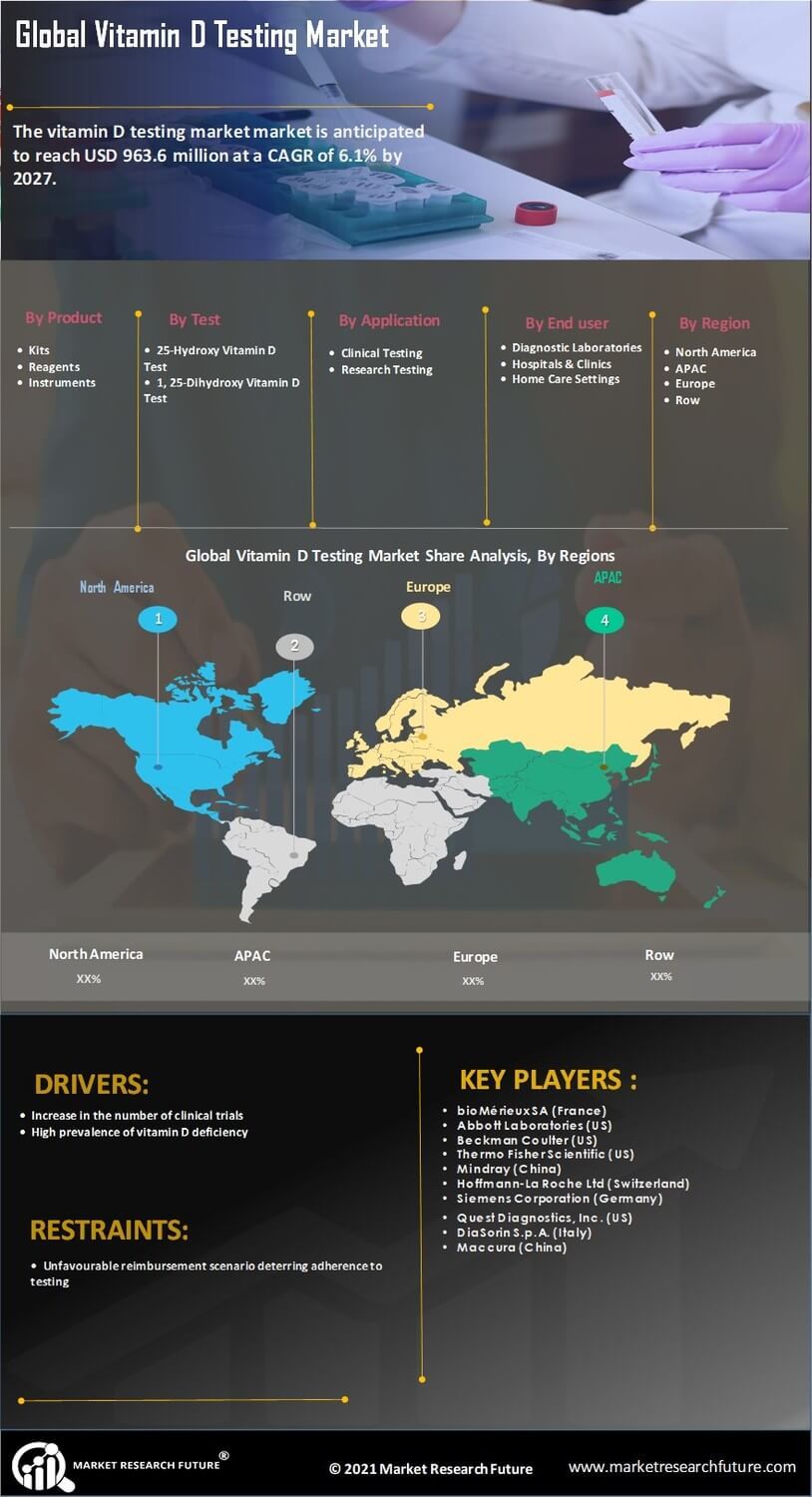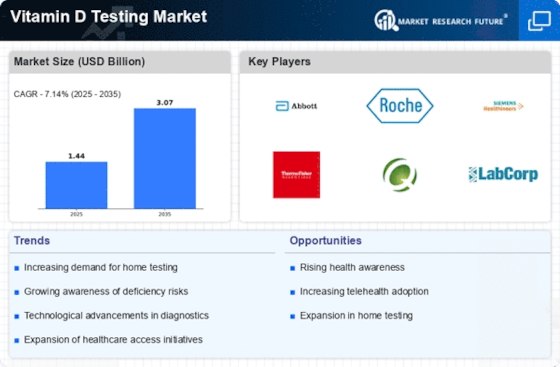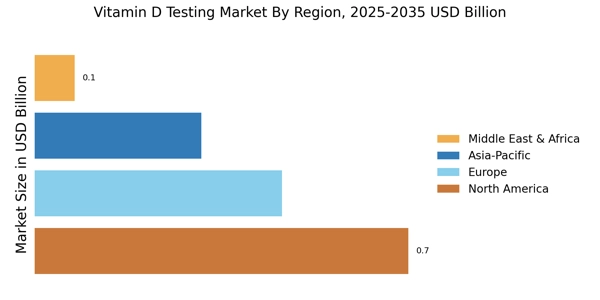Growing Focus on Preventive Healthcare
The increasing emphasis on preventive healthcare is a notable driver for the Vitamin D Testing Market. As healthcare systems worldwide shift towards preventive strategies, the importance of monitoring vitamin D levels has gained traction. Preventive healthcare initiatives aim to identify potential health risks before they escalate, and vitamin D testing plays a vital role in this approach. Research suggests that adequate vitamin D levels can reduce the risk of chronic diseases, prompting healthcare providers to recommend regular testing. Furthermore, public health campaigns advocating for awareness about vitamin D's role in overall health are likely to contribute to market growth. The rising healthcare expenditure on preventive measures is expected to bolster the demand for vitamin D testing, reflecting a broader trend towards holistic health management.
Rising Consumer Awareness and Education
The growing consumer awareness regarding the health benefits of vitamin D is a crucial driver for the Vitamin D Testing Market. As individuals become more informed about the implications of vitamin D deficiency, there is a noticeable increase in demand for testing services. Educational campaigns and health information dissemination have played a pivotal role in this trend, highlighting the importance of maintaining adequate vitamin D levels for overall well-being. Moreover, the rise of social media and online health platforms has facilitated the spread of information, empowering consumers to take charge of their health. This heightened awareness is reflected in the increasing sales of vitamin D supplements and testing services. As consumers seek to understand their health better, the demand for vitamin D testing is expected to rise, indicating a shift towards more proactive health management.
Rising Incidence of Vitamin D Deficiency
The increasing prevalence of vitamin D deficiency across various populations appears to be a primary driver for the Vitamin D Testing Market. Studies indicate that nearly 1 billion people worldwide are estimated to have insufficient levels of vitamin D, which can lead to various health issues, including osteoporosis and cardiovascular diseases. This growing awareness of deficiency has prompted healthcare providers to recommend routine testing, thereby expanding the market. Furthermore, the rise in lifestyle-related health conditions, such as obesity and sedentary behavior, has been linked to lower vitamin D levels, further emphasizing the need for testing. As healthcare systems increasingly focus on preventive measures, the demand for vitamin D testing is likely to grow, reflecting a shift towards proactive health management.
Integration of Advanced Testing Technologies
Technological advancements in testing methodologies are significantly influencing the Vitamin D Testing Market. Innovations such as high-throughput testing and point-of-care testing devices have made vitamin D testing more accessible and efficient. For instance, the introduction of automated analyzers has improved the accuracy and speed of vitamin D level assessments, catering to the rising demand for quick results. Additionally, the development of home testing kits allows individuals to monitor their vitamin D levels conveniently, thus expanding the consumer base. According to recent data, the market for home testing kits is projected to grow at a compound annual growth rate of over 10% in the coming years. This integration of technology not only enhances testing capabilities but also aligns with the trend of personalized healthcare, making it a crucial driver for the Vitamin D Testing Market.
Increased Government Initiatives and Guidelines
Government initiatives and guidelines promoting vitamin D testing are emerging as a significant driver for the Vitamin D Testing Market. Various health organizations are recognizing the importance of vitamin D in maintaining health and are advocating for routine testing, particularly in at-risk populations. For example, guidelines issued by health authorities recommend screening for vitamin D deficiency in individuals with certain risk factors, such as older adults and those with limited sun exposure. These initiatives not only raise awareness but also encourage healthcare providers to incorporate vitamin D testing into standard practice. As governments continue to prioritize public health, the support for vitamin D testing is likely to increase, thereby enhancing market growth. The alignment of healthcare policies with testing practices could lead to a more robust framework for managing vitamin D levels.

















